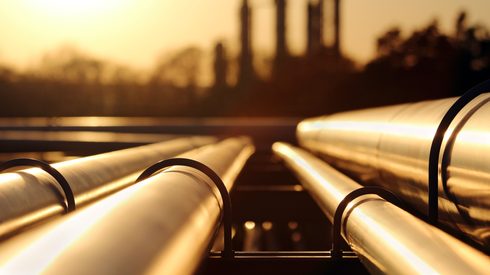The plan is to have the unit ready to produce 40,000 tonnes per year of MHP by the end of the decade, with an average 48% nickel content, a spokesperson confirmed recently. Its output ramp-up, however, will be gradual and modular, with phase one including just a demonstration plant.
“We bought this plant, which is in pristine condition, and plan on making use of some 70% of the equipment,” Wave Nickel chief executive officer Gustavo Emina said in an interview on April 17. “But the Caron-process furnace will be switched for our own microwave process.”
The company signed a deal on April 13 to acquire a mine, a processing plant and all operating infrastructure of Niquelândia, a nickel unit owned by Brazilian aluminium producer Companhia Brasileira de Alumínio (CBA) in a city with the same name located in the Midwestern Goiás state, for 20 million Reais ($4 million).
Originally a subsidiary of Brazilian industrial group Votorantim SA, Niquelândia, was put under care and maintenance in early 2016 due to falling nickel prices. It was later reorganized from Votorantim Metals – which became Nexa Resources to go public – into CBA.
The nickel mine has some 55 million tonnes in resources, with around 20,000 tpy in nickel carbonate capacity. But that is not what Wave Nickel intends to do.
“The deposits are laterite ore, typical of tropical areas. Brazil doesn’t produce MHP, or class I intermediates in general, and carbonate is costlier, it has higher carbon emissions,” Emina said. “Our [microwave] process is competitive and more sustainable, cheaper and with lower energy usage.”
According to the CEO, the new technology – yet to be tested on industrial scale – would be able to cut carbon dioxide emissions by roughly 28% for nickel alone. He added that the potential is even larger than that, because byproducts would be net zero carbon.
Nickel market remains under pressure
The Asian MHP market has been under pressure amid decreasing costs and lower nickel sulfate prices.
Fastmarkets assessed the nickel mixed hydroxide precipitate outright price, cif China, Japan and South Korea at $16,000-17,000 per tonne on May 5, stable week on week but down by 3.79% from $17,000-17,300 per tonne a month before and 7.56% lower than $16,700-19,000 per tonne on December 30, 2022.
And Fastmarkets’ assessment of the nickel sulfate premium, cif China, Japan and Korea was $1,000 per tonne on May 5, stable from the week before, when it fell by 16.67% from $1,200 per tonne on April 21.
The first phase of the Niquelândia reopening, scheduled to start up by the end of 2024, will be comprised of one plant to test engineering parameters of the process, a spokesperson told Fastmarkets on April 26. Wave Nickel expects to reach full commercial scale by 2029.
Emina believes this would further help Brazil to be on the map for the global energy transition. If the technology is successful at the recently-acquired site, it could be replicated in the country.
“In the past year or so, there has been a drastic change in where new projects are taking place, with the Western world pitching in to get capital outside of China to do it,” the executive said. “The United States has recently changed regulation to accelerate adoption of electric vehicles. There is not enough raw material for that.”
Wave Nickel is part of a larger group called New Wave, focused on research and development of technologies aimed for sustainability and bioeconomy efforts. Besides Wave Nickel, the group has Wave Aluminium, which recently signed a deal with Norsk Hydro to build a plant in Brazil that will process bauxite waste.
The acquisition of the Niquelândia nickel plant is still subject to approval from Brazil’s antitrust watchdog CADE and the country’s electrical power regulator, ANEEL. On top of 20 million Reais, CBA will receive 3% royalties over the unit’s net revenue, up to $10 million a year.
Keep up to date with the latest news and insights on our dedicated battery materials market page.







